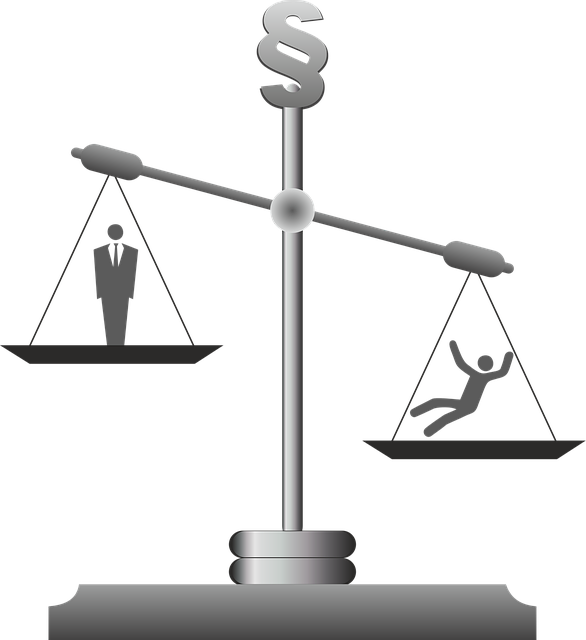Understanding jury biases is vital for maintaining the integrity of the criminal justice system. Through strategic voir dire, attorneys and judges uncover potential biases among prospective jurors, ensuring a fair trial environment. By recognizing societal influences and preconceived notions that impact jurors' decisions, lawyers play a crucial role in mitigating these biases, especially in cases involving white-collar crimes. This approach promotes impartial verdicts based solely on evidence, fostering justice for all within the community.
In the intricate world of criminal law, jury selection plays a pivotal role in ensuring fairness. This article delves into the critical process of mitigating biases during trials, focusing on common jury prejudices and effective strategies for lawyers to overcome them. By understanding these biases, legal professionals can navigate complex cases more adeptly, upholding justice and ensuring every defendant receives a fair trial. Uncover essential insights into recognizing and addressing biases in criminal proceedings.
- The Role of Jury Selection in Mitigating Biases
- Recognizing and Addressing Common Jury Biases in Criminal Trials
- Strategies for Lawyers to Overcome Jury Prejudice During Legal Proceedings
The Role of Jury Selection in Mitigating Biases

Understanding Jury Biases in Criminal Cases is a critical aspect often overlooked in legal proceedings. Jury selection plays a pivotal role in mitigating potential biases that could influence the outcome. This process, known as voir dire, involves careful questioning and evaluation of prospective jurors to ensure they can render an impartial verdict based on the evidence presented. By delving into their backgrounds, experiences, and views, attorneys and judges can uncover and address any preconceived notions or prejudices that might affect their judgment.
Avoiding indictment is not merely about selecting individuals free from bias; it’s also about fostering an environment where diverse perspectives are considered fairly. In serving as the eyes and ears of the court, jurors must be able to set aside personal beliefs, especially when representing respective business, corporate, or individual clients. Effective jury selection processes ensure that the final panel is representative and capable of making decisions based on facts alone, thus upholding the integrity of the criminal justice system.
Recognizing and Addressing Common Jury Biases in Criminal Trials

In criminal trials, understanding and addressing jury biases is a critical aspect of achieving extraordinary results in general criminal defense. Juries, composed of folks from diverse backgrounds, often bring preconceived notions and prejudices into the courtroom, which can significantly impact their decision-making process. These biases, if unrecognized, may lead to unfair judgments against defendants, undermining the integrity of the legal system. Common biases include racial, gender, and economic stereotypes, as well as assumptions based on a defendant’s past or social status.
Lawyers play a pivotal role in recognizing and countering these biases. They can employ strategic techniques like carefully selecting jurors, presenting compelling evidence, and delivering impactful arguments to ensure a fair trial. By addressing jury biases head-on, legal professionals foster an environment where the focus remains on the facts of the case, promoting justice for all within the philanthropic and political communities. This approach not only strengthens the legal process but also ensures that the system operates with the sensitivity it deserves in high-stakes criminal cases.
Strategies for Lawyers to Overcome Jury Prejudice During Legal Proceedings

In criminal law cases, understanding jury biases is paramount for lawyers to ensure a fair trial. Jury prejudice can significantly impact the outcome, leading to potential miscarriages of justice. Lawyers must employ strategic tactics to overcome these biases, which often stem from societal influences and preconceived notions about crime and perpetrators. By recognizing common stereotypes associated with criminal defendants—such as assumptions about their moral character or guilt based on the nature of the crime—lawyers can tailor their arguments and presentation of evidence accordingly.
For instance, in cases involving white-collar and economic crimes, where the alleged offenses may not fit traditional notions of “crime,” attorneys should focus on highlighting the complexities and nuances of the case to avoid a complete dismissal of all charges. This includes presenting detailed narratives that contextualize the defendant’s actions, addressing any potential misunderstandings or misconceptions, and emphasizing the importance of due process. Effective communication strategies can help juries view the evidence objectively, ensuring that guilty verdicts are based on fact rather than prejudice.
Understanding jury biases in criminal cases is paramount to ensuring fair legal proceedings. By recognizing and addressing common biases, lawyers can employ effective strategies to mitigate their impact. Through meticulous jury selection and thoughtful advocacy, it’s possible to create a more impartial environment, allowing for just outcomes. This comprehensive approach, focusing on both identification and countermeasures, plays a crucial role in upholding the integrity of the criminal justice system.






